About Us
Why Penn Medicine TTM Academy?
Targeted temperature management (TTM), previously known as therapeutic hypothermia (TH), is an important intervention that has improved outcomes from cardiac arrest and among patients with neurocritical injury. In our experience as educators and scholars on cardiac arrest and post-arrest care, we have learned that many hospital-based providers struggle with consistent implementation of TTM protocols, and there is a general lack of educational resources to train new staff in TTM application.
We wanted to build a set of resources to address this need . . . and that is Penn Medicine TTM Academy.
Why Us?
Our team at the University of Pennsylvania Center for Resuscitation Science has been involved in post-arrest care and TTM research and teaching for nearly 15 years. We are passionate about improving cardiac arrest outcomes, and equally passionate about teaching and sharing with other emergency and critical care providers around the world Dr. Abella, the Director of the Center for Resuscitation Science, developed the idea for Penn Medicine TTM Academy along with the team members below:
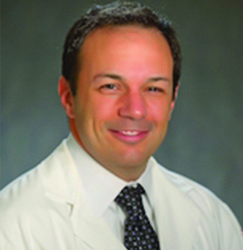
Benjamin Abella, MD MPhil
William G. Baxt Professor of Emergency Medicine • Director, Center for Resuscitation Science
Dr. Abella helped establish post-arrest TTM protocols at both the University of Chicago and the University of Pennsylvania, and has authored over 180 scientific works on cardiac arrest and post-arrest care. He is highly regarded as a prolific lecturer on TTM, and has led TTM training workshops around the world, including Korea, Singapore, Thailand, Poland, Iceland, and at numerous conferences in the United States. He is Co-Chair of the National American Heart Association Resuscitation Science Symposium, the premier global meeting focused on cardiac arrest and post-arrest care. He has discussed TTM with Dr. Sanjay Gupta on CNN, on National Geographic, and other media sources.
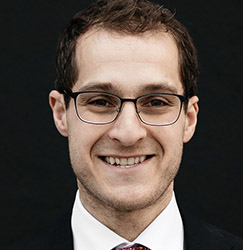
Oscar Mitchell, MD, MSCE
Assistant Professor, Division of Pulmonary and Critical Care Medicine • Associate Director, Center for Resuscitation Science
Dr. Mitchell is interested in the identification and prevention of deterioration of hospitalized adults to prevent decompensation and death. He is currently researching the effects of delayed assessment of deteriorating patients on inpatient mortality and in-hospital cardiac arrest.

David Fischer, MD
Instructor, Department of Neurology · Director, Recovery of Consciousness Via Evidence-Based Medicine and Research (RECOVER) Program
Dr. Fischer recently joined us at Penn and the Center for Resuscitation Science as a faculty member in neurocritical care unit after completing his residency and fellowship at Massachusetts General Hospital and Brigham and Women’s Hospital in Boston. Dr. Fischer’s research interests pertain to the neurological prognostication, assessment, and care of post-cardiac arrest patients, as well as disorders of consciousness.
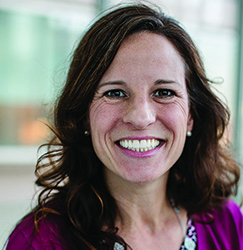
Juliane Jablonski, DNP, RN
Critical Care Nurse Specialist Hospital of the University of Pennsylvania
Dr. Jablonski is an experienced critical care nurse and nursing Chair of the Penn Critical Care Committee, where she has led the TTM task force for protocol development and updates. She is a passionate teacher and collaborator on critical care nursing topics.

Joshua Levine, MD
Chief, Division of Neurocritical Care · Professor of Neurology
Dr. Levine is a leader in neurocritical care, having established the neurocritical care units at both the Hospital of the University of Pennsylvania and the Penn Presbyterian Medical Center. Dr. Levine has lectured at numerous TTM workshops alongside Dr. Abella, and has trained numerous fellows in the care of patients after cardiac arrest. He has participated in clinical trials pertaining to cutting-edge cerebral resuscitation and monitoring.
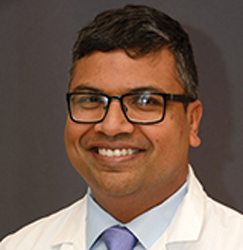
Ramani Balu, MD, PhD
Adjunct Assistant Professor of Neurology · Attending Neurointensivist, Inova Fairfax Medical Center (Annandale, VA)
Dr. Balu is an expert on neurologic monitoring in the ICU setting, and has developed a research program focused on critical brain illnesses such as encephalitis and post-arrest injury. A superb speaker and teacher, he has lectured at national meetings and authored scientific works on brain injury and physiology.

Felipe Teran-Merino, MD, MSCE
Assistant Professor of Emergency Medicine, Weill Cornell Medical College
Dr. Teran is an assistant professor of Emergency Medicine at Weill Cornell Medical College whose field of work includes critical care ultrasound, transesophageal echocardiography (TEE), and emergency critical care and resuscitation. He completed his Emergency Medicine residency and fellowship in Emergency Ultrasound at Mount Sinai Hospital in New York City before serving as a clinical investigator at Penn’s Center for Resuscitation Science for several years. Dr. Teran continues to collaborate closely with the Center for Resuscitation Science while investigating the safety and benefits of employing focused TEE in acute critical care settings at Cornell.
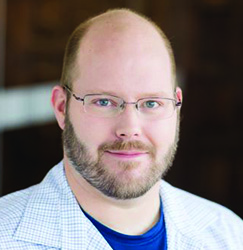
David Buckler, EMT-P
Affiliated Manager Program Manager – TTM Academy · Icahn School of Medicine at Mount Sinai
Mr. Buckler has led research and educational projects on cardiac arrest and post-arrest care for nearly 10 years. A paramedic by clinical training, Mr. Buckler strongly believes in bringing medical education to a large audience of clinicians including prehospital providers. He has authored many scholarly works on cardiac arrest care and has led TTM workshops along with Drs. Levine and Abella.


